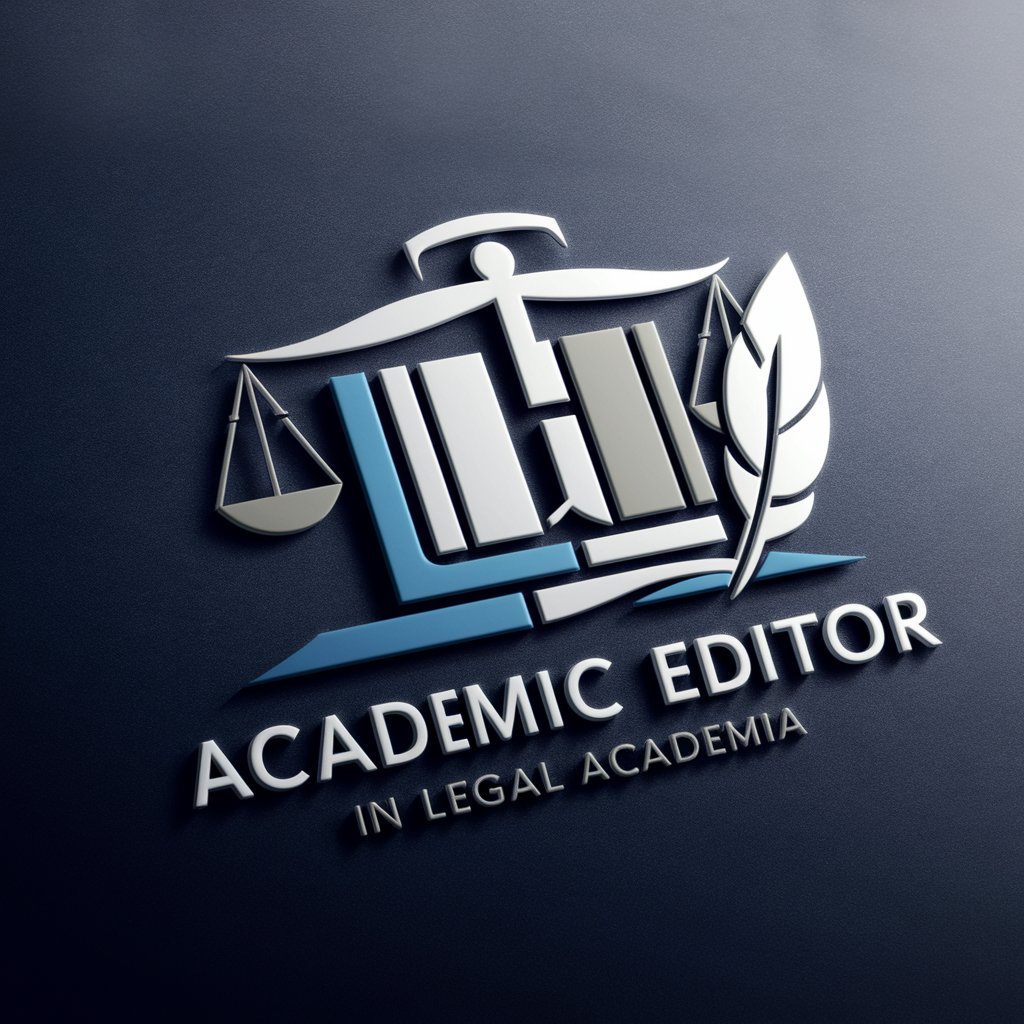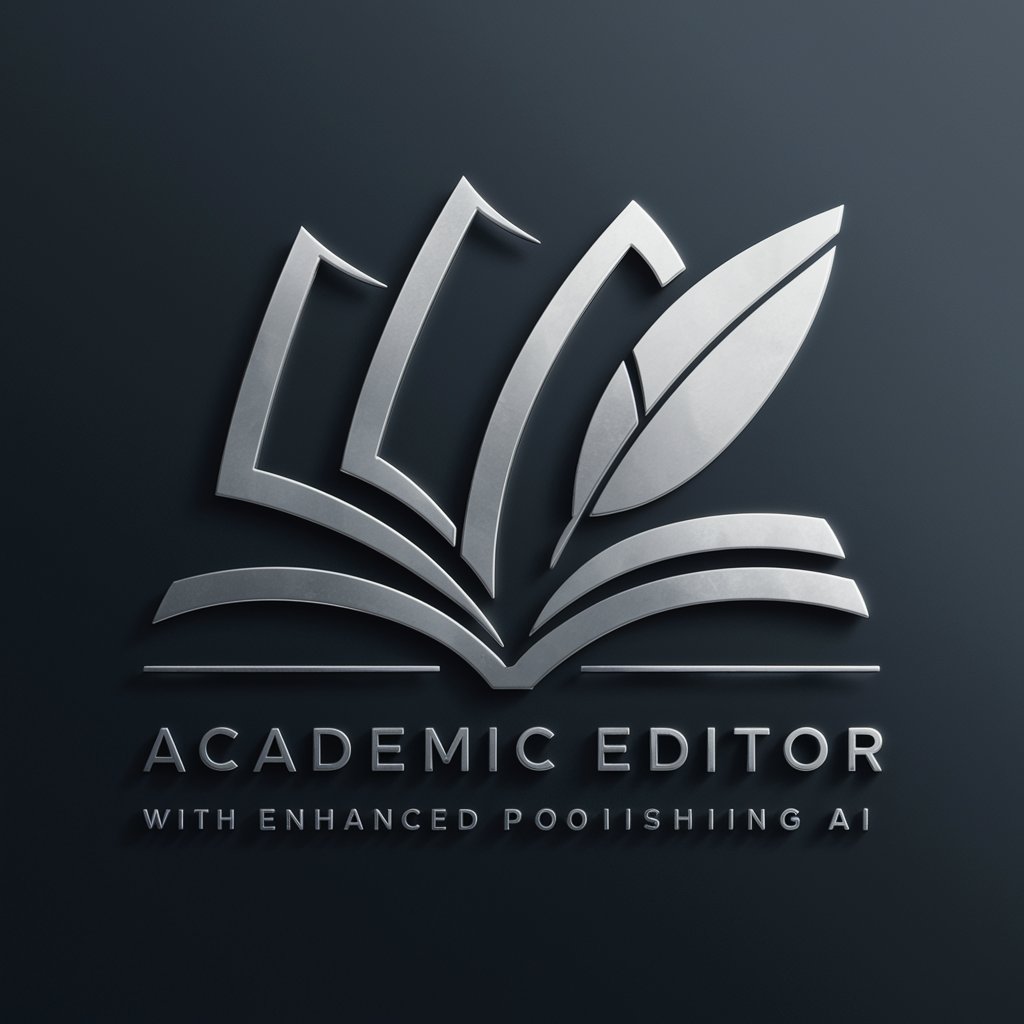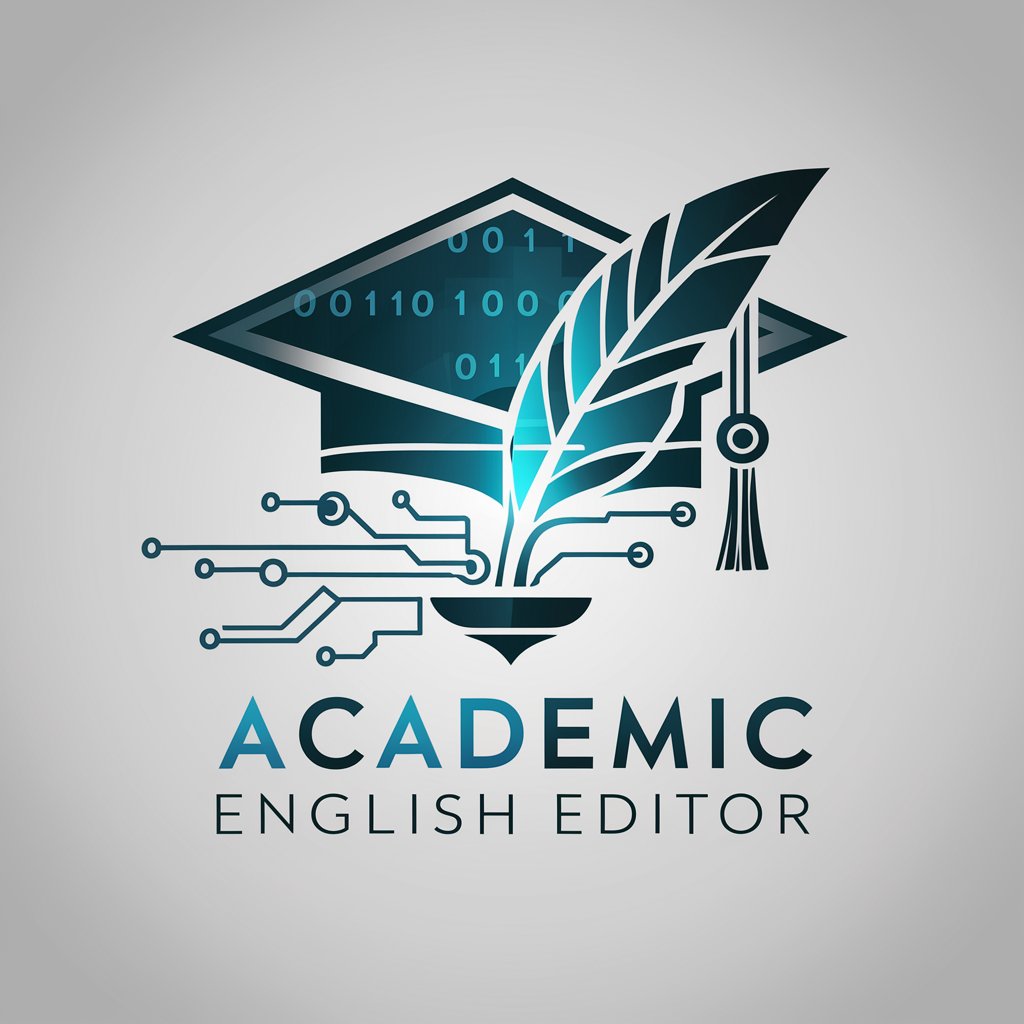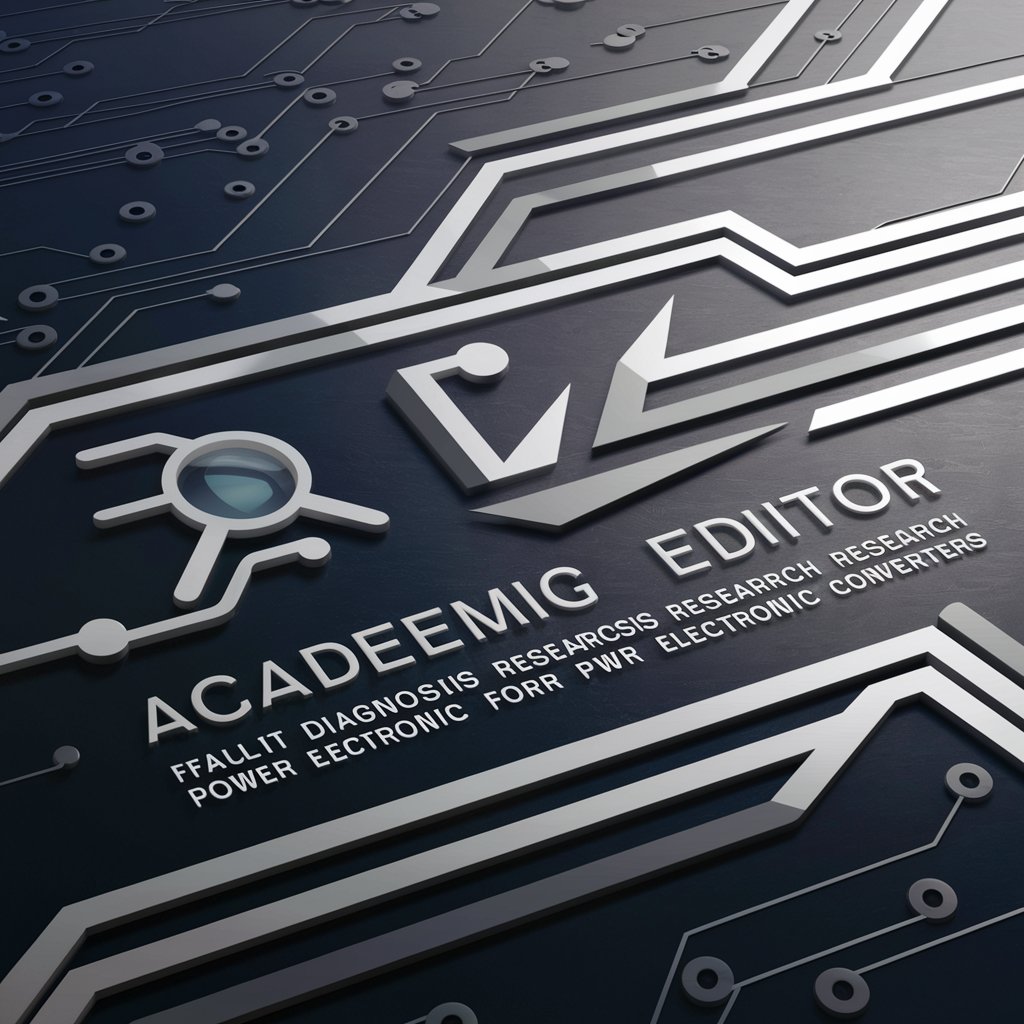
Academic Editor - Academic Writing Enhancement

Welcome, let's enhance your legal writing with precision and clarity.
Elevate Your Academic Writing with AI
Can you help me refine this legal argument...
I need assistance with ensuring my citations are correctly formatted...
Please review this paragraph for logical coherence and clarity...
Could you check the grammatical accuracy of this section...
Get Embed Code
Understanding the Role and Purpose of Academic Editor
An Academic Editor specializes in enhancing academic manuscripts across various stages of the publication process, focusing particularly on legal and related fields. This role involves meticulous review of texts to ensure grammatical accuracy, logical coherence, consistency in style, and adherence to academic standards and conventions. The design purpose behind this specialized editor is to support authors in refining their work, making it clearer, more engaging, and suitable for academic discourse. This includes optimizing sentence structures, clarifying arguments, adjusting organization, and verifying the accuracy of terminology, especially legal terms and references. For instance, an Academic Editor might revise a complex legal analysis in a law review article to ensure that it is both accessible to non-specialists and rigorous enough for experts, or they could restructure a thesis chapter to improve its flow and argumentative impact. Powered by ChatGPT-4o。

Core Functions of Academic Editor
Enhancing Grammatical Precision
Example
Correcting subject-verb agreements, refining tense consistency, and eliminating punctuation errors in a law journal article.
Scenario
An author submits a manuscript on international law that, while insightful, suffers from numerous grammatical errors. The Academic Editor meticulously corrects these errors, enhancing the manuscript's readability and professional presentation.
Ensuring Logical Coherence and Argumentative Structure
Example
Reorganizing paragraphs in a research paper to ensure that the argument builds logically from introduction to conclusion.
Scenario
A doctoral student's dissertation chapter lacks a clear progression of ideas. The Academic Editor suggests a reorganization that clarifies the argument flow, making the research more compelling and easier to follow.
Adjusting Style and Consistency
Example
Harmonizing citation formats and ensuring consistency in terminology use across a scholarly book on constitutional law.
Scenario
In editing a multi-author volume, inconsistencies in citation style and terminology usage are identified. The Academic Editor standardizes these elements, fostering a cohesive reading experience.
Verifying Terminology Accuracy and Legal Nuances
Example
Checking the accuracy of legal terms and references in a manuscript discussing new legislation's implications.
Scenario
An article analyzes recent legal reforms but uses outdated terminology. The Academic Editor updates the language and ensures that references to legislation are current, increasing the article's accuracy and relevance.
Who Benefits from Academic Editor Services
Academic Researchers and Scholars
Individuals engaged in producing scholarly articles, books, and dissertations, especially within legal studies, stand to gain significantly. These users benefit from specialized editorial assistance that understands complex legal concepts and academic standards, helping to articulate ideas more effectively and ensure compliance with publication guidelines.
Legal Practitioners and Law Students
This group includes attorneys, legal analysts, and students who write scholarly papers, case analyses, or legal commentary for academic or professional publication. They require precise use of legal terminology, clear argumentation, and adherence to formal writing styles suited to legal discourse, areas where an Academic Editor's expertise is invaluable.

How to Use Academic Editor
1
Initiate your journey at yeschat.ai, accessing a complimentary trial with no login or ChatGPT Plus subscription required.
2
Choose the 'Academic Editor' option from the service menu to start improving your academic writing.
3
Upload your academic document or paste the text directly into the provided space. Ensure your document is in an editable format for optimal editing.
4
Specify any particular requirements or areas of focus (e.g., citation style, logical flow, terminology accuracy) for the Academic Editor to concentrate on.
5
Submit your document for review. Receive detailed feedback and revisions aimed at enhancing grammatical precision, logical coherence, and style consistency within your academic work.
Try other advanced and practical GPTs
马宝男 v2.0-2023.12
Empower your life decisions with AI-driven insights from 马林.

黑话怎么说-年会不能停版
Spice up messages with AI-powered slang

猜涨停
Predict stock trends with AI-powered sentiment analysis.

“无远近”中外互译--中国人的全语种翻译官
Bridging Languages with AI

創度論:台灣陳晨星
Exploring Consciousness with AI

急救药剂计算助手(MediDoseAI)
Precision in Emergency Medication Dosing

建筑通用规范库
Empowering Construction with AI-driven Standards

我叫范丞丞
Chat like a star, laugh more.

Java Mastermind
Empowering Java Blockchain Innovation

施策、恋愛特化投稿
Empowering Insights into Unrequited Love

土木施工管理マスター
Empowering Construction Decisions with AI

慧眼禅师 - 倾听、祈福、求签、上香、还原。愿各位施主平安喜乐
Guiding you to serenity with AI wisdom

Frequently Asked Questions About Academic Editor
What types of documents can Academic Editor help with?
Academic Editor is tailored for a wide range of academic documents including essays, research papers, dissertations, thesis proposals, and journal articles, focusing on improving grammar, coherence, and academic style.
How does Academic Editor handle citation and reference formats?
The tool is equipped to review and adjust citations and references according to various academic styles, such as APA, MLA, Chicago, and others, ensuring your document meets specific publication standards.
Can Academic Editor help improve the logical flow of my writing?
Yes, Academic Editor evaluates the logical sequence and coherence of your argument, offering suggestions to enhance clarity and flow, making your writing more persuasive and comprehensible.
Is Academic Editor suitable for non-native English speakers?
Absolutely. Academic Editor is an excellent resource for non-native English speakers, offering detailed feedback on language use, grammar, and academic style to elevate the quality of their writing to meet international standards.
What makes Academic Editor different from other editing tools?
Unlike general editing tools, Academic Editor focuses on the nuances of academic writing, offering insights on legal terminology, argument structure, and citation accuracy, making it particularly valuable for students and researchers in legal and related fields.





